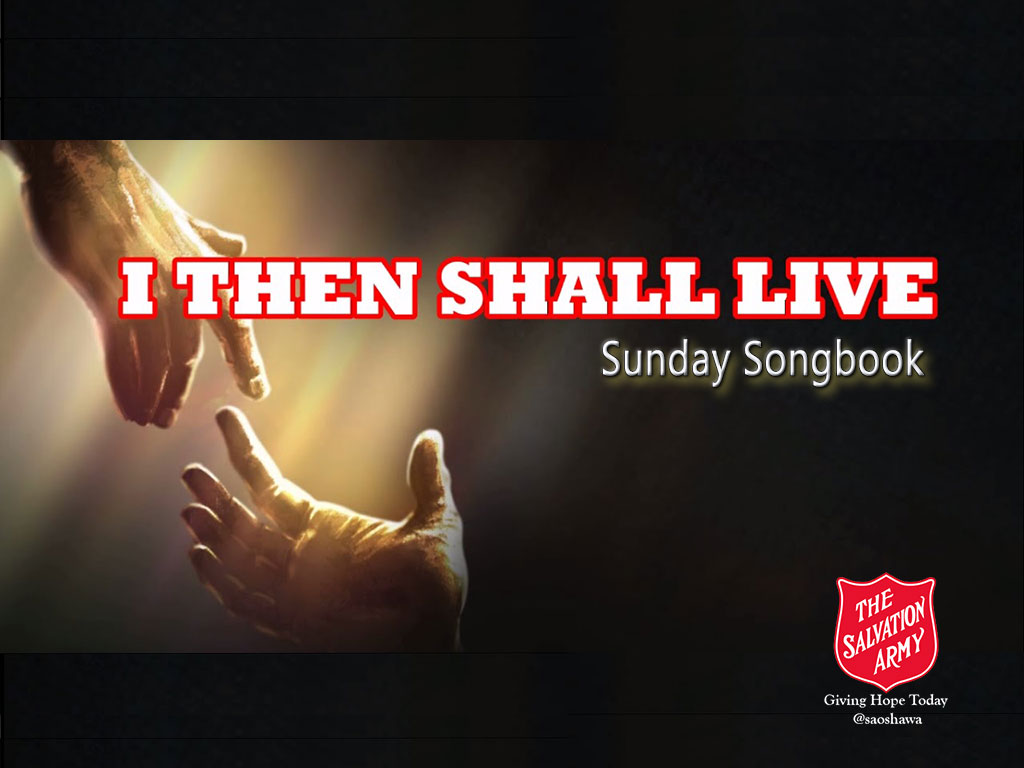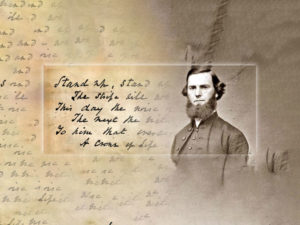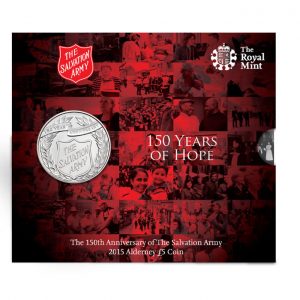I then shall live as one who’s been forgiven;
I’ll walk with joy to know my debts are paid;
I know my name is clear before my Father;
I am His child and I am not afraid.
So, greatly pardoned, I’ll forgive my brother;
The law of love I gladly will obey.
I then shall live as one who’s learned compassion;
I’ve been so loved that I’ll risk loving, too.
I know how fear builds walls instead of bridges;
I’ll dare to see another’s point of view.
And when relationships demand commitment,
Then I’ll be there to care and follow through.
Your Kingdom come around and through and in me;
Your power and glory – let them shine through me;
Your hallowed name, oh, may I bear with honour,
And may Your living Kingdom come in me.
The Bread of Life, oh, may I share with honour,
And may You feed a hungry world through me.
Anyone who has watched the Gaithers’ television show has probably heard this lovely song more than once. Although some credit is given to Bill for contributing to the lyrics, the song is mainly Gloria’s work. In an interview, she points out that she does not claim to have fully attained the goals of the song, but aspires to do so. She was inspired to write these words by Francis Schaeffer’s 1976 book, How Should We Then Live? .
Anyone who has watched the Gaithers' television show has probably heard this lovely song more than once Share on X Gloria was born in Battle Creek, Michigan in 1942, the daughter of a pastor. After high school she attended Anderson University in Indiana and then became a French teacher in Alexandria Monroe High School, where Bill Gaither taught English. They were married in 1962 and, as one might expect, enjoyed writing Gospel songs together. Gloria later furthered her education, receiving an M.A. degree in British and American Literature. For a time she was an adjunct professor at Anderson University.
Gloria was born in Battle Creek, Michigan in 1942, the daughter of a pastor. After high school she attended Anderson University in Indiana and then became a French teacher in Alexandria Monroe High School, where Bill Gaither taught English. They were married in 1962 and, as one might expect, enjoyed writing Gospel songs together. Gloria later furthered her education, receiving an M.A. degree in British and American Literature. For a time she was an adjunct professor at Anderson University.

The Gaithers have toured the world and blessed thousands with their music, whether live, on television or in recordings. They have three grown children and reside in Indiana.
WORDS: GLORIA AND BILL GAITHER; MUSIC: TUNE – FINLANDIA: JEAN SIBELIUS
S.A. SONG BOOK, 2015 EDITION, #850
REFERENCES: WIKIPEDIA; SAVEOBU







